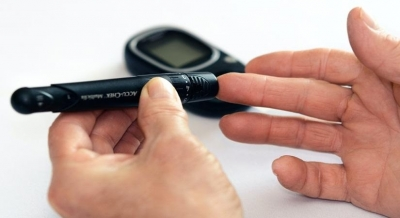Health
Children at high type 1 diabetes risk if fathers have the condition: Study

New Delhi, July 27
A team of scientists has revealed that a child is almost twice as likely to develop type 1 diabetes if the father has the condition than the mother.
The study, the largest of its kind and published in the journal Diabetologia, suggests that exposure to type 1 diabetes in the womb confers long-term protection against the condition in children with affected mothers relative to those with affected fathers.
Understanding what is responsible for this relative protection could lead to opportunities to develop new treatments to prevent type 1 diabetes, said researchers.
“Individuals with a family history of type 1 diabetes are 8-15 times more likely to develop the autoimmune condition – however, studies have shown the risk is higher if the affected relative is the father rather than the mother. We wanted to understand this more,” said lead researcher Dr Lowri Allen from Cardiff University in the UK.
Previous studies have suggested that maternal type 1 diabetes is associated with relative protection against type 1 diabetes in offspring during early life.
The new study involved 11,475 individuals who were diagnosed when they were between 0 and 88 years old.
The results show they were almost twice as likely (1.8 times more likely) to have a father with type 1 diabetes as a mother with the condition.
“Taken together, our findings suggest the relative protection associated with having a mother versus father with type 1 diabetes is a long-term effect that extends into adult life,” said Allen.
However, the timing of the parent’s diagnosis was important.
An individual was only more likely to have a father, rather than a mother, with type 1 diabetes, if the parent was diagnosed before the individual was born.
In other words, having a mother with type 1 diabetes only appears to provide a child with protection against the condition (relative to having a father with type 1 diabetes) if the mother has the condition during pregnancy, the findings showed.
Further research is needed to determine what it is about exposure to type 1 diabetes in the womb that is most important.
“Is it exposure to high blood glucose levels, insulin treatment, antibodies associated with type 1 diabetes, a combination of these, or exposure to another aspect of type 1 diabetes?” asked researchers.



































